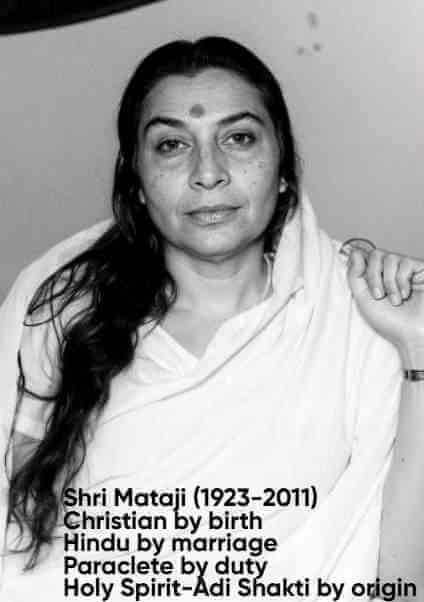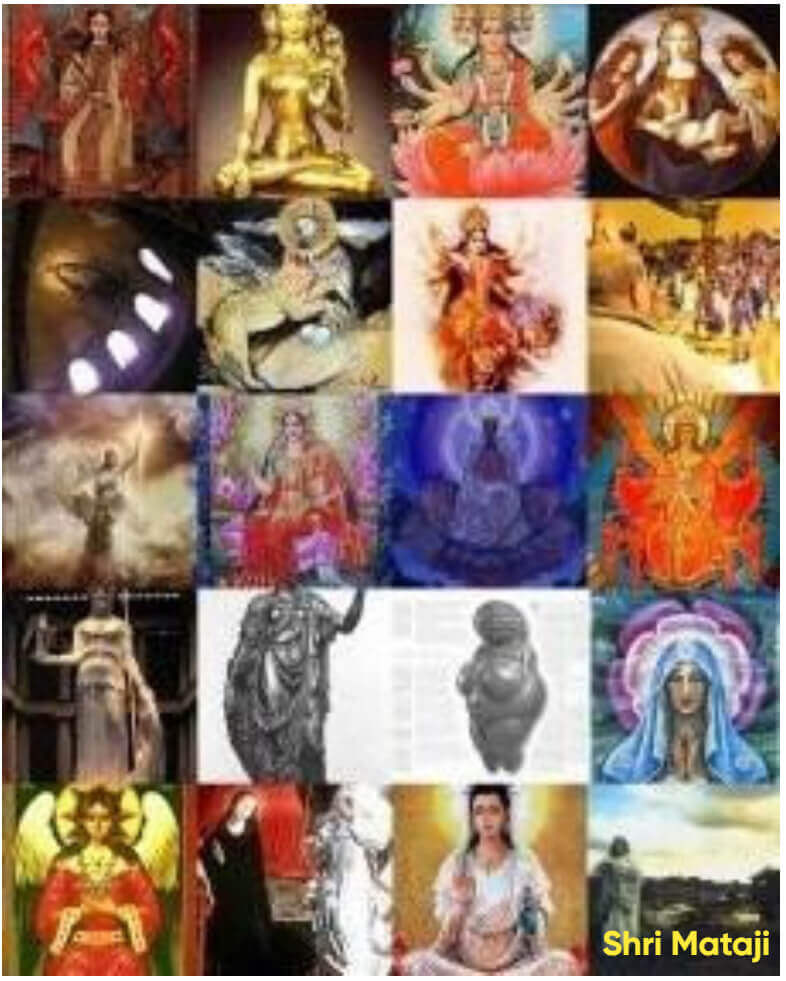How I Lost Faith: How the end of religion can be the beginning of God
Shri Mataji Nirmala Devi's teachings offer a transformative path that transcends "manmade" belief systems by emphasizing direct, experiential realization of the divine Self. Unlike rigid dogmas that often ensnare seekers in rote concepts, as Tijn Touber experienced, Shri Mataji's focus on pure knowledge—arising from the heart in the thoughtless awareness of the thurya state liberates individuals from external doctrines. Her teachings guide practitioners to connect with God Almighty through inner silence and personal experience, bypassing the limitations of organized religion and fostering a universal, authentic spirituality that aligns with the non-dual essence of the divine, as echoed in the Upanishads.
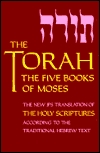


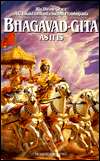
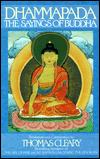
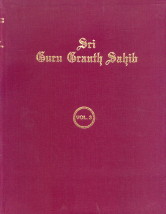
How I Lost Faith: How the end of religion can be the beginning of God
By: Tijn Touber
Religion seems to get in the way of our true connection with God. It seems only to connect people with others looking for the one pure faith, notes Ode senior editor Tijn Touber, which leads to the formation of more sects. That's why he recently severed his years- long connection with the spiritual community he belonged to—an Indian Raja Yoga institute—and now believes that spirituality's future may depend on dismantling the houses of the holy.
Two years ago I lost my faith. After 14 years of nearly uninterrupted focus on God and spiritual growth I was suddenly done. I had lived like a monk. Granted, I was in the midst of modern life and not in a cloister. Yet I was celibate, vegetarian, didn't use drugs, alcohol or other mind-altering substances and got up every day at 4:00 a.m. to practice meditation.
So why was I suddenly done with all that? I came to the conclusion that I had fallen prey to one of the chronic illnesses of our time: organized religion. Increasingly, my thoughts had become rote and routine. My own experiences served less and less as my guide, and my actions were increasingly ruled by the concepts, rules and dogmas of my religious community. The Buddhists have a wonderful word for what I had lost: "Beginner's mind.”
In those 14 years I had an answer for everything. What God is, where we come from, where we are going, what the meaning of life is, why the world is such a mess. People came to me for advice and, without skipping a beat, I directed them to God. Well, to my God. It all worked fine, until doubts started to creep in. Not so much about God or the wisdom I had acquired; I mainly doubted the value of my teachings and advice. I saw all too often that people followed what I said only to get caught up in "manmade" belief systems.
In the non-traditional religions and new age-like movements, you often see that structured perceptions of God cause people to become rigid and smothered. They give up everything they have for gurus, turn their backs on friends and family, dress in exotic clothes and adopt foreign customs in hopes of getting closer to God. They switch off their common sense in favor of the newly adopted moral frame of mind. Feeling is replaced by a checklist of the organization's rules.
Of course not everyone falls prey to blind obedience. Many learn from their experiences and remain open, but the sway of such spiritual groups is strong and it takes integrity and courage to resist the prevailing dogmas. And it takes a lot of insight, because you often can't see the moral assumptions of the group's culture. The bible tells us that humans are "insignificant" and "tend toward evil.” But is that true? We learn that Allah will reward us in heaven if we sacrifice for him in this life. But is that true? Who has so much insight that they are capable of putting their own moral context in perspective? Are fish aware of the water they swim in? Several years ago I spoke with the Episcopal priest Lloyd Casson, who at that time was the vicar of Trinity Church, the prestigious church on Wall Street in New York. I will never forget what he said when I asked him why religious and spiritual leaders often think in such a restricted way and prescribe such damaging rules to their disciples. I cited examples such as confession and penance, harsh discipline, original sin, numbing rituals. The priest went quiet for a moment, perhaps considering whether he should say something or not. Then he sat up straight: "Most religious leaders barely have the time to connect with God. They aren't practicing religion, but politics. These are senior civil servants whose hands are full keeping the institution running. Their primary concern is "recruiting souls.”
The word "religion" is derived from the Latin word religare meaning "to reconnect with God.” Religare is said to come from the Sanskrit word yogum, meaning "integration" or "unity.” Isn't it ironic that the top ranks of the religious and spiritual world apparently have little time to connect with God? The history of organized belief is teeming with efforts to hand down laws and recruit souls. Very successfully, it seems. Only 14 percent of the world's population is officially non-religious. The rest is divided among Christianity (33 percent), Islam (22 percent), Hinduism (15 percent), Buddhism (6 percent) and smaller branches (10 percent), including indigenous faiths and new age movements.
The beginning of the end of my self-imposed monk's existence came when I uttered three simple words: "I don't know.” It was during a class in which questions were being fired at me one after the other. Personal problems, theological disputes, spiritual experiences—I was there to provide clarity. But no more, I thought. And why? Because I didn't know the answers. And I decided to say so.
I was greatly relieved. And I wasn't the only one—so were my students. Which is logical really, because we were suddenly sitting together as equals, as seekers looking out for one another on a new path to wisdom. I could learn from them, too. I could open up and receive. I decided that from then on I would go only with my own experience and not with a "truth" I had learned by rote.
I decided to stop teaching and haven't for the past two years. Now all I do, I sometimes say jokingly, is make tea. Every two weeks people come over to my house to share their experiences—sometimes spiritual, sometimes not—and to meditate or pray together. Every imaginable topic is discussed and each one of us seems to have our own way of experiencing God and life.
How would it be if spiritual leaders were to meet one another like this? How freeing would it be if they were able to step out of their scholarly convictions for awhile and respectfully bow their heads toward each others' mutual religious efforts. After all, what do we really know about God or a potential hereafter? What do we understand about creation? The more you begin to grasp it, the greater the miracle becomes and the more you recognize that you really don't understand very much at all. Isn't it arrogant to pretend that you know God and know what he or she wants? Aren't you then implying that you are God's equal? (Which may well be the case, but that's another story.)
Imposing your God on someone else is the height of arrogance. When you force your truth on someone, you reject his or her experience. it's like saying: "What you feel and think and have seen is no good.”By rejecting a fellow human being this way, you actually reject creation, which is God's creation, right? You take it upon yourself to pass judgement based on your moral assumptions and theories that cannot be proved. You become blind to the truth, which is that there are different people with different experiences. You live in denial and separate yourself from the larger whole, which means that you automatically separate yourself from God.
So religion was meant to reconnect us with God. And of course this happens too; there are wonderful people who do the most amazing things thanks to their belief. Based on a rock-solid Hindu faith, Gandhi was able to drive the British out of his country with little bloodshed. The Christian church played a major role in abolishing apartheid in South Africa and the Islamic zaqat tax system—whereby 2.5 percent of income goes to charity—shows how magnanimous religions can be. Apart from the inspiring lives of Jesus, Buddha and Mohammed, more recent history has also shown that religious figures can create miracles, just think of Mother Teresa, the Dalai Lama and Martin Luther King.
But organized religious movements do not, by definition, connect people with God. They primarily connect people with one another, which leads to the formation of sects that live based on the same "truth.” When one such group no longer respects the truth of another group, the two butt heads. Ultimately, the result is not connection, but separation and division.
If a religion leads to division, is it still a religion? How can you claim to be connected with God if you turn away from your fellow human beings? To what level have you sunk as a "religious" or "spiritual" person if you believe you can reject, convert or even attack the dissidents among us in the name of God? What's left of God if we commit crimes in his or her name? Instead of gaining inspiration from a benevolent God that represents all that is beautiful and true, God is debased and corrupted. God is made to do our dirty work. God is elevated to a supreme authority that will sort out our problems. Children do that when they're afraid. They use their father to threaten others: "If you don't stop I'll get my dad and he can beat up your dad.”Religious sectarians cry," My father is God.”And the more afraid they are, the louder they cry.
Why are we so afraid? Probably because we are so unsure. When I feel unsure, I try even harder to have the last word, as if I want to convince myself too. I'm thinking that the more people who agree with me, the more my uncertain "truth"Will become" true.” If, however, I'm really sure about something and feel it deep inside, I don't need to convince anyone else.
When I was able to admit that "I don't know," space was suddenly created in my life for authentic experiences. And those experiences— how paradoxical!—are often so intense they give me more certainty and trust than I get from earlier deeply-held spiritual beliefs. Intellectual concepts about how something must be get in the way of experiencing what is.
The founders of new religions, who true believers now worship, didn't allow themselves to be led by the prevailing dogmas of their time, but were open to a new reality. They followed their own sense and their own feeling. They weren't disciples or rule makers but inspiring individuals who pointed to the greatness of God and to creation. After they passed away, more and more rules, dogmas, commands, mores, codes, missions, credos and laws were created. It is a known fact that Christians are often more righteous than Jesus, just as Marxists are more doctrinaire than Marx.
The true value of a religious persuasion lies not in its moral codes or religious texts and writings. The value of every life philosophy— whether it be Islamic, capitalistic, scientific, agnostic or anarchistic—can be seen in the happiness and well-being of those who believe in it. This is a generalization, but if you want to know whether the Bible is right, look at Christians around the world. How do they treat one another, the planet, their children, their money, dissidents? How healthy are they, how happy is the expression on their faces, how warm-hearted are they?
If it appears that a particular faith seems to instill misery, it's time to consider revisions. This is not just about unconscious and deeply-rooted thought patterns, but about what we have chosen to call "holy.”
Re-examining our concepts about God, creation and the hereafter feels like pulling the rug out from under civilization. Religious convictions are at the very foundation of our thinking, but also form the basis of our pain. The fall from grace, the separation from God, the separation from the goddess, the loss of innocence, original sin, the burden of guilt, the fear of sinful acts and an omnipresent, wrathful and vengeful God color many people's perceptions of existence. Not to mention the concepts that encourage surrendering to a higher authority without question; the wrenching choice between humanity and God; the degradation of feelings, emotions and desires; and—last but not least—the way humans are nullified by hierarchical structures with God at the top of the pyramid.
The crisis currently facing many religions could end up being a good thing. Aversion to fundamentalist thinking is increasing exponentially now that religions are showing their worst side. A few years ago, religious groups may have been able to get away with attacking one another to prove they were right. But that's becoming a thing of the past. You don't have to wear flowers in your hair to understand that humanity cannot afford such childish behavior. Weapons of mass destruction have made that impossible. Our backs are up against the wall—a wall we've built ourselves to protect us against the uncertainty of earthly existence.
How do you break down such walls? The first step is to realize that the wall is an illusion. The wall only exists in your own mind and consists of ideas, concepts and convictions you've adopted. The good news is, you can always go back to who you were before you started building the wall. For me it was simply a matter of sitting silently, breathing deeply, smiling and tuning into the beautiful world inside. The emotion I felt was so great that no wall can withstand it.
Along with re-establishing contact with your own deepest core, it's also useful to revise the religious concepts that determine your life. Are they working for or against you? You can still gain inspiration from religious texts and age-old stories as long as you are aware that they are stories. Nothing more, nothing less. I often forget what I did yesterday, let alone remember what someone else did 2,000 years ago.
Another concept worth reconsidering is that "knowing" will lead to wisdom. This drives us to get to the bottom of the truth. But maybe it's better not to understand everything. Maybe the point of life is not about getting to the bottom of it. Maybe it's simply about living for the sake of living. Maybe life doesn't have any deeper meaning than the meaning that you give it each moment. It can be liberating to keep the mystery intact instead of wanting to unravel it, explain it, write it down and proclaim you've uncovered the ultimate "truth.” For me, in any case, saying "I don't know", sitting in silence and being open to listen offers more insight than a rational analysis or a logical explanation.
Of course it's dead scary to let go of the certainties we've adopted. I spent months immersed in doubt. Who was I, now that I had turned away from the identity I lived and breathed for 14 years? There was a gaping emptiness, as if paradise were lost. Not only later, but also now, here. Nothing was certain anymore, nothing was fixed. I had landed on earth and was suddenly facing life alone. There wasn't a single authority I could turn to. And precisely then, in the depths of that fear, I found myself smiling. It may have been scary and lonely, but it was real. Now that there wasn't anyone to trust blindly, I rediscovered my own navigational system, which enabled me to live based increasingly on my own inner wisdom.
The moment I rediscovered myself, God reappeared in my life. Not the God of Christianity, Islam or any other organized faith, but my God. I no longer have to prove, explain or praise this God. I only have to experience God, which makes my life even more rich and beautiful. it's wonderful to believe in a beautiful, true God. It provides hope and inspiration and gives my life a deeper meaning.
I've noticed that belief and common sense can coexist quite well together. They are not antitheses but different realities that can live side by side. I cannot and do not have to explain God in order to believe in him (her?, it? them?). Part of me has a great need for religion, spirituality, mysticism, rituals and unconditional surrender to a higher power. Another part is critical and tests mystical experiences against practical reality. Faith is beautiful, as long as it does not become blind.
When I let go of my blind faith, more space was created within me for religious, mystical or spiritual experiences. A head full of facts and details was no longer standing in the way, which allowed the heart to speak. Losing my faith was the best thing that could have happened to me, because now I can believe again.
How I Lost Faith: How the end of religion can be the beginning of God
https://www.operationrebirth.com/ttouber.html
How I Lost Faith: How the End of Religion Can Be the Beginning of God
Introduction
The journey toward spiritual fulfillment often involves navigating the complex interplay between organized religion and personal experience. Tijn Touber, in his reflective essay How I Lost Faith: How the End of Religion Can Be the Beginning of God,
recounts his disillusionment with the structured practices of an Indian Raja Yoga institute after 14 years of disciplined spiritual life. His narrative challenges the notion that organized religion is the sole pathway to divine connection, proposing instead that authentic spirituality emerges from personal experience and openness to uncertainty. This paper explores Touber's journey, analyzing how the dissolution of rigid religious frameworks can lead to a more profound and personal encounter with the divine, drawing on his insights and broader philosophical perspectives.
Tijn Touber's Spiritual Journey and Disillusionment
Touber's spiritual practice was rigorous, marked by celibacy, vegetarianism, abstinence from mind-altering substances, and daily meditation at 4:00 a.m. Despite this dedication, he reached a breaking point, concluding that he had fallen prey to one of the chronic illnesses of our time: organized religion.
His thoughts had become rote and routine,
governed by the dogmas of his spiritual community rather than his own experiences. This loss of beginner's mind
—a Buddhist concept emphasizing openness and curiosity—prompted him to question the value of his teachings, which often led others into manmade
belief systems rather than genuine spiritual growth.
Touber's disillusionment was not with the concept of God but with the restrictive frameworks imposed by organized religion. He observed that structured perceptions of the divine often led practitioners to adopt rigid behaviors, forsake personal relationships, and prioritize group morality over common sense. His pivotal moment came when he admitted,
I don't know,during a teaching session, a declaration that liberated both himself and his students by fostering mutual exploration as equals. This shift marked the beginning of his departure from institutionalized spirituality, as he chose to rely solely on personal experience rather than prescribed truths.
The Role of Organized Religion in Spiritual Disconnection
Touber's critique of organized religion echoes broader philosophical concerns about its tendency to prioritize institutional preservation over divine connection. He references Episcopal priest Lloyd Casson, who noted that religious leaders often act as senior civil servants focused on recruiting souls rather than fostering genuine spiritual experiences. The etymology of religion,
from the Latin religare (to reconnect) and possibly linked to the Sanskrit yogum (integration or unity), suggests an original purpose of facilitating divine connection. Yet, Touber argues, organized religion frequently fosters division by creating sects bound by shared truths,
leading to conflict when these truths clash with others.
Historical examples illustrate both the potential and pitfalls of organized religion. Figures like Gandhi, Mother Teresa, and Martin Luther King drew on religious faith to achieve profound social change, demonstrating its capacity for good. However, Touber contends that organized movements often prioritize group cohesion over individual experience, resulting in separation rather than unity. He questions the validity of religious doctrines that label humans as insignificant
or tend toward evil,
arguing that such beliefs undermine personal agency and authentic spirituality.
Reconstructing Spirituality: The Power of Personal Experience
Touber's decision to abandon teaching and focus on sharing experiences in informal gatherings reflects a shift toward a spirituality grounded in authenticity. By embracing uncertainty with the phrase I don't know, he created space for genuine encounters with the divine, unencumbered by dogmatic constraints. This approach aligns with the practices of spiritual pioneers like Jesus, Buddha, and Mohammed, who, Touber notes, followed their own inner guidance rather than prevailing dogmas. Their teachings, initially rooted in personal revelation, were later codified into rigid structures by followers, often diluting their original essence.
Touber's rediscovery of my God
—a personal, experiential divine presence—underscores the transformative potential of letting go of institutionalized beliefs. He describes this process as both liberating and daunting, marked by a gaping emptiness akin to losing paradise. Yet, in this vulnerability, he found a new navigational system based on inner wisdom, allowing him to experience God as a source of richness and beauty without the need for external validation. This personal spirituality balances faith with common sense, allowing mystical experiences to coexist with critical reflection.
Challenges and Implications for Modern Spirituality
The transition from organized religion to personal spirituality is fraught with challenges. Touber describes months of doubt and identity crisis after relinquishing his role within the Raja Yoga institute. The fear of losing certainty and community can be profound, yet he suggests that this fear is an illusion—a wall built from adopted concepts that can be dismantled through introspection and openness. By reconnecting with his deepest core through silence and meditation, Touber found a spirituality that was both authentic and resilient.
The broader implications of Touber's journey are significant in a world grappling with religious fundamentalism and division. He argues that the crisis in organized religion, driven by increasing aversion to dogmatic rigidity, presents an opportunity for spiritual renewal. By prioritizing personal experience over prescribed truths, individuals can foster a spirituality that respects diverse perspectives and avoids the arrogance of imposing one's beliefs on others. This approach not only reconnects individuals with the divine but also promotes unity among seekers, aligning with the original intent of religare.
Conclusion
Tijn Touber's journey from rigid adherence to organized religion to a liberated, personal spirituality illuminates a profound truth: the end of religion can mark the beginning of a deeper connection with God. By shedding the constraints of dogma and embracing the uncertainty of I don't know, Touber rediscovered a divine presence that was authentic, personal, and free from institutional confines. His experience challenges spiritual seekers to prioritize inner wisdom over external authority, fostering a spirituality that is inclusive, experiential, and aligned with the essence of divine connection. In a world marked by religious division, Touber's insights offer a path toward a more unified and authentic spiritual future.

